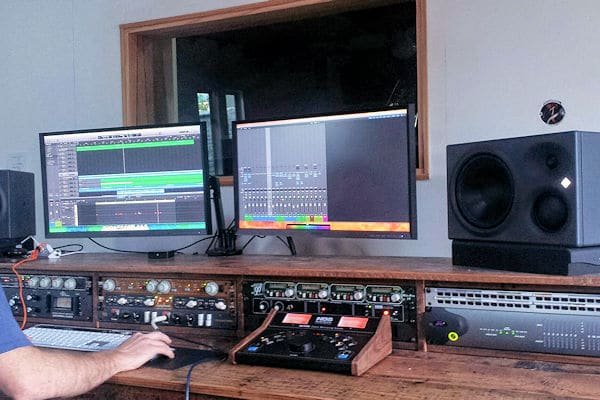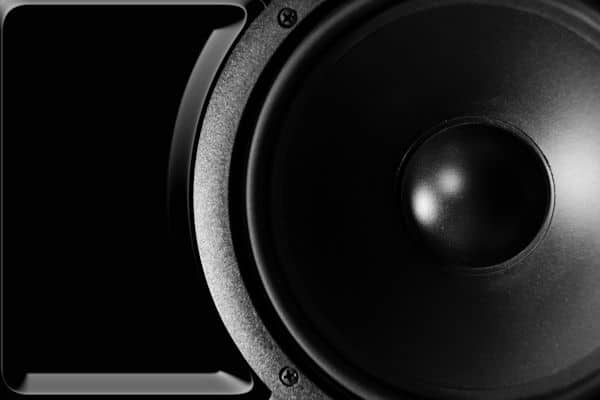Are Studio Monitors Good for Listening to Music?

Do you own a pair of some amazing studio monitors or do you own some great-sounding home speaker systems? Are you contemplating bringing in a pair of studio monitors to your already great-sounding listening environment?
Or, do you want to set up a hybrid system where you incorporate both studio monitors and consumer speakers? Whatever the case is, the first thing you need to understand before making this decision is that there are levels of listening.
To avoid complicating issues, I will classify these levels of listening [in the context of audio] into two, and they will be – “critical” and “appreciative” listening.
Critical Listening
Keeping it simple, I will define critical listening as the kind of listening with the sole aim of analyzing and evaluating. In this context, it means trying to spot all the details and nuances in a song. These details and nuances may be things like how compressed a vocal line is, sibilance in vocal renditions, harsh and pleasing frequencies, the punch of a kick drum, guitar fret noises, unwanted low ends, the snap of a snare drum, etc.
In this kind of listening, you are not exactly listening to appreciate or enjoy, but to correct and even analyze. To achieve proper critical listening, your listening device or devices have to be as accurate as possible.
Think about a judge hearing a case in a court. What will the judge seek from the testifiers? Obviously, the judge will seek accuracy, precision, and honesty from anyone testifying. This is exactly what you will need from playback systems used for critical listening.
A playback system that makes the bass frequencies sound so nice and rounded even when they are not could be likened to a testifier in a court who exaggerates and uses flattery words. Obviously, this kind of information will impair sound judgment. Going back to music, this is where studio monitors come in.
Studio Monitors are Designed to Be As “Flat” As Possible
What “flat’ means in this context is that they have a flat “frequency response.” Going back to our “court of law” analogy, a “flat frequency” response will mean honesty, truth, and precision in testimony.
The theory of “flat frequency response,” says that if you make music on a set of speakers that actually have a “flat” frequency response, then your music will translate perfectly well on other playback systems.
This is because you will not be adding up or subtracting from whatever is missing in the frequency spectrum of the playback system you are working on. For example, if a speaker has [let’s say] a 3-decibel boost at 200 Hz, you will have to use an equalizer to take that frequency out from the mix to have a tonally balanced mix. This explains why studio monitors are always rated high based on how “flat’ they can be.
Studio monitors do not have to exaggerate or even understate, they just have to be as flat as possible. They have to tell “nothing but the truth” without any form of coloration, just so you can make a sound precise, and guarded musical judgment during critical listening. The best studio monitors reproduce the music as accurately as possible.
Imagine if your monitors tell you that the bass guitar is boomy, and you go ahead and take off some bass from that bass guitar. Now, listening to that bass guitar on another playback system, you only get to discover that it was not boomy because it now sounds weak because of the bass you rolled off. Enough said on this…
Appreciative Listening

This is more like listening to flattery words from someone, you are not exactly after the “truth” – you are just after the beauty of those words and how good they will make you feel – or look. In this case, you are not like the judge who wants nothing but the “truth” – musically, this is appreciative listening. This is where the normal consumer speakers shine bright.
This video will give a little more insight on why studio monitors are necessary:
Consumer Speakers Are Designed to “Sound Nice”
Unlike studio monitors which are designed to sound “flat,” consumer speakers are designed to sound just beautiful. Consumer speaker designers can achieve this by coloring, boosting, and even attenuating certain frequencies.
A little low-end boost will make the speaker appear to have a lot more bass and a little coloration in the high frequencies will make vocals and guitars shine brighter and sound a lot more pleasing.
What Makes Studio Monitors Different from Consumer Speakers?
Accuracy: Studio monitors are designed to be as accurate and revealing as possible while consumer speakers are designed to sound nice and color sound for more pleasing listening.
Listening Distance: Most studio monitors are designed to be listened to from a short distance while consumer speakers are designed to be listened to from longer distances. This is why studio engineers place their speakers just beside their desks.
Power Supply: For most studio monitors, you will require an amplifier or an audio interface added with additional power from your socket outlets to power them. On the other hand, most consumer speakers do not require amplifiers to produce sound. Their power requirement is not as much as their studio counterparts.
Budget: An average studio monitor will always cost more than an average consumer speaker.
Which Should You Go For, Studio Monitors or Consumer Speakers?
So far, you can see the differences between these two. Personally, the major difference lies in the sound they give.
At first, you might not like the revealing and “honest” sound of studio monitors as they are not bent on pleasing you but telling you the truth, but that is its strong point.
None of these two is superior or inferior to the other, they are just different. If what you are after is an enjoyable listening experience and not a critical and judgmental one, then you are better off with consumer speakers.
But, if your listening experience leans more towards the critical end, then you are better off with a pair of studio monitors. Just know exactly what you want and go for that.
news via inbox
Sign up for the latest music news and entertainment!






